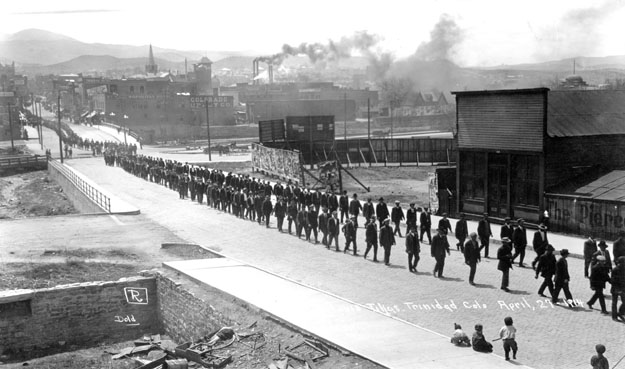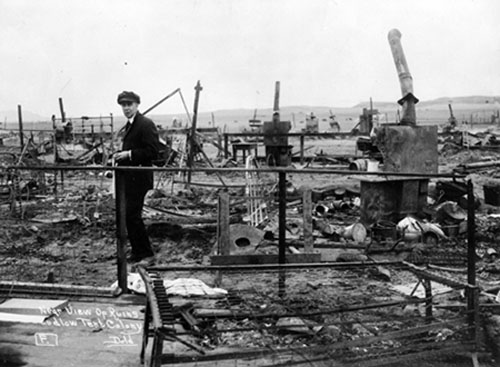Wednesday Lazy Linking
Jury Says it's Okay to Record the TSA. schneier, Schneier on Security (2011-01-31).
The Seattle man who refused to show ID to the TSA and recorded the whole incident has been cleared of all charges: [The jury] returned not guilty verdicts for charges that included concealing his identity, refusing to obey a lawful order, trespassing, and disorderly conduct. Papers, Please! says the acquittal…
(Linked Tuesday 2011-02-01.)Revolution in Egypt: Learn More! inciteblog, INCITE! Blog (2011-02-01).
Are you excited about the grassroots revolution happening in Egypt? Do you want to learn more about the background of what's happening and what the movement is organizing for? Here are some resources: First, a recent video of a protester in Tahir Square in Cairo. She explains the political goals…
(Linked Tuesday 2011-02-01.)“Free as in Sexist?”: Sexism in the Free Culture Movement. Joseph Reagle (2011-01-28).
The introduction to my draft on free culture and sexism: In the summer of 2010, David Finsher and Aaron Sorkin’s film about the beginnings of Facebook (“The Social Network”) attracted much discussion about the portrayal of women in geeky projects. Tracy Clark-Flory (2010fpo), writing for Salon.com, wrote the film prompts…
(Linked Tuesday 2011-02-01.)Early Corporate Welfare: "An act for the relief of sick and disabled seamen" Jad Davis, The jVerse (2011-01-31).
A friend pointed out a fascinating article on "An act for the relief of sick and disabled seamen"[1] which the author points to as a precedent for Congress mandating health coverage for citizens of the United States. I don't have any disagreement with his conclusion, that the Constitution in no…
(Linked Tuesday 2011-02-01.)Annual Bay Area Anarchist Cafe. kate, Anarchoblogs in English (2011-02-01).
The Anarchist Cafe is on! Every year, the Bay Area Anarchist Bookfair is preceded by the annual Anarchist Cafe, an sober-space gathering with vegan dinner and performances, that provides a space for folks to gather before the madness of Bookfair weekend sets in. Much fun, good eats, lots of good…
(Linked Tuesday 2011-02-01.)It's a Child, Not a Choice. Center for a Stateless Society (2011-02-01). “No, it’s not an anti-abortion rant… The problem isn't lack of competition within the government education mandate. The problem is the government education mandate.” (Linked Tuesday 2011-02-01.)
Obama Marxism Watch — Be Very Afraid! Kevin Carson, Center for a Stateless Society (2011-01-06).
For over two years, we unappreciated patriots have taken upon ourselves the thankless task of outing Barack Obama as a closeted Marxist and exposing his insidious socialist agenda for enslaving this country. While Obama sat in his Red Study Circle with comrades Geithner, Summers and Rubin, busily reading "Quotations from…
(Linked Tuesday 2011-02-01.)Traffic Problems Will Disappear by Year 2000 (1955) Matt Novak, Paleofuture Blog (2011-02-01).
From the 1958 Disneyland TV episode Magic Highway, USA The September 22, 1955 Lewiston Daily Sun (Lewiston, ME) ran a wonderful piece titled, “Hope For the Motorist: Traffic Problems Will Disappear by Year 2000.” Such unbridled optimism for the yet to be developed Interstate Highway System is downright cute. Well,…
(Linked Wednesday 2011-02-02.)Store Fronts. Dorothy, Cat and Girl (2011-02-01). (Linked Wednesday 2011-02-02.)
Hell No, We Won’t Fire. Jesse Walker, Jesse Walker: Reason Magazine articles and blog posts. (2011-01-31).
When the troops won't shoot, the game's just about over: The Egyptian army has said it will not use force against protesters calling for the removal of President Hosni Mubarak ahead of a "million people" march. The military said it considers the people's demands "legitimate".
(Linked Wednesday 2011-02-02.)Andrew Jackson. IOZ, Who Is IOZ? (2011-01-10).
Is there a bigger, more sanctimonious boob in the whole blessed world than Keith Olberman? “Violence, or the threat of violence, has no place in democracy”? Um, uh, what? Tell it to the Cherokee. Tell it to the Iraqis. Tell it to Baltimore and Washington South of the Capitol. Tell…
(Linked Wednesday 2011-02-02.)

